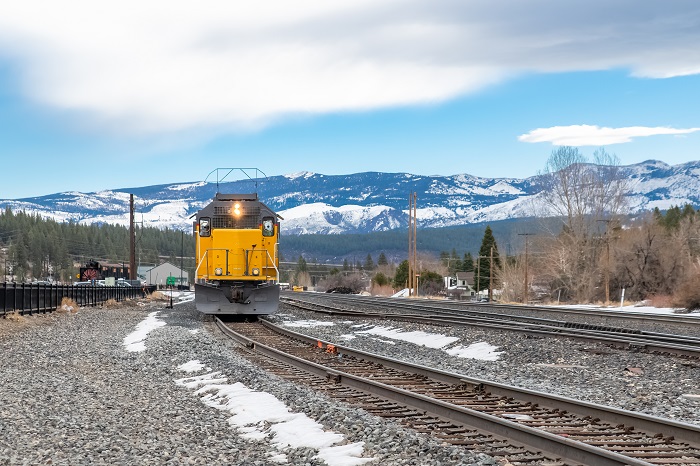headline news online news
By John Biers
Lawmakers in the US House of Representatives voted Wednesday to prevent a potentially catastrophic freight rail strike, stepping in to break an impasse between workers and executives during a critical pre-holiday period. online news
The bill, passed with a solid bipartisan majority, effectively forces hold-out unions to accept a September deal on increased wages, which a majority of unions had already agreed to.
The bill must now go to the Senate, where leaders of both parties have suggested they will move quickly to head off a disruption of the US rail system right before Christmas.
Congress is empowered under a 1926 law to resolve disputes between railroads and labor unions, as part of its power to regulate commerce.
President Joe Biden praised the bipartisan vote to avert a shutdown that “would devastate our economy and families everywhere,” but said the measure must pass swiftly.
“Without more action, supply chain disruptions will begin,” Biden said on Twitter. “The Senate must urgently send a bill to my desk.”
White House Press Secretary Karine Jean-Pierre told a press briefing that Biden expects the bill to reach him by next weekend.
The Biden administration had taken a hands-on approach to the long-running deadlock over a contract between organized labor and railroads, with cabinet secretaries in September participating in all-night negotiations alongside union leaders and rail executives.
After that marathon session, leaders from the two sides announced a tentative agreement.
Since that time, members of eight of the 12 rail unions approved the deal, while four voted it down.
The agreement includes a 24 percent pay increase for workers. But critics in organized labor have slammed a lack of guaranteed paid sick leave, an omission that has been seen as evidence of “unchecked corporate greed,” as one leading union put it.
headline news online news
In a win for organized labor, the House also backed a measure to add mandated paid sick time to the agreement, addressing the major sticking point identified by unions.
The sick-leave measure passed on a tighter, mostly party-line vote, leaving its fate in the Senate more uncertain.
Test for Union Joe
The failure of the agreement to win universal approval among the unions set the stage for a potential strike on December 9, putting the White House in an awkward spot.
Biden, who has been dubbed “Union Joe” for his strong affinity for organized labor, called on Monday for Congress to act.
His call was endorsed by numerous business groups and resonated with leading congressional Republicans, including Representative Sam Graves of Missouri, who called the prospect of a strike a “catastrophic economic disaster.”
The House voted 290-137 in favor of the resolution to enact the agreement, with 79 Republicans joining most Democrats in backing the measure.
Since Monday, at least two of the four unions that voted down the agreement have publicly criticized Biden’s stance.
The Brotherhood of Maintenance of Way Employees (BMWED), part of the Teamsters union, said it was “deeply disappointed” by the president’s action, while the Brotherhood of Railroad Signalmen also expressed disappointment as it encouraged the Biden administration “to stick to its pro-worker roots” and insist that guaranteed paid sick leave be included in the deal.
But both unions coalesced around a separate resolution championed by House Democrat Donald Payne Jr. to add seven days of paid sick leave to the agreement.
Payne, in proposing the measure, described it as “about fairness” in light of the sacrifices made by rail workers and other essential workers during the pandemic.
“Without paid sick time, railroad workers are forced to make a choice between their health, or the health of their families, and their paychecks,” Payne said.
But Graves said the existing agreement was “more than fair for rail workers.”
Graves noted that Biden had hailed the September agreement, but “it’s now clear that the administration cannot close their own deal,” he said in urging colleagues to vote against the measure adding paid sick leave.
In the end, the resolution still passed on a largely party-line, 221-207, with all 218 Democrats present voting in support, along with three Republicans.
jmb/des/st/dw
© Agence France-Presse All rights are reserved.
headline news online news


